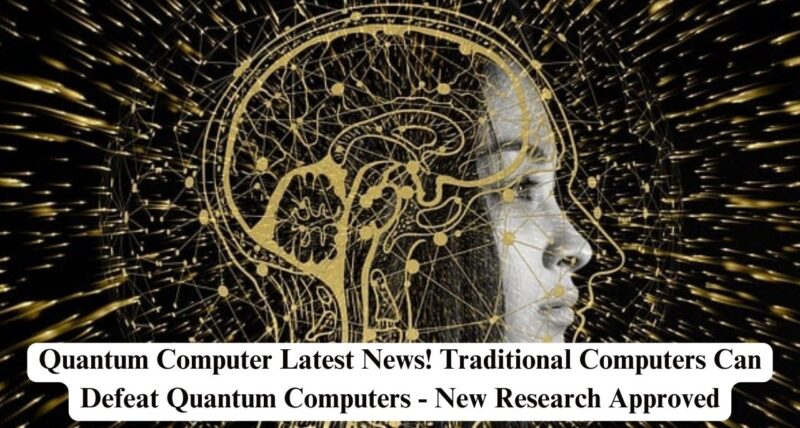Traditional computers are indispensable engines of the Internet era. But the development of quantum computing has raised doubts about its ongoing applicability. Quantum computing, known for its speed and memory improvements, is taking over the computational sciences. Recent research, however, indicates that its dominance might not be as strong as once thought. The quantum computer latest news indicates that classical computing has been able to exceed the capabilities of quantum computers.
Traditional Computing vs Quantum Computing
Traditional computing and quantum computing are significantly distinct from one another. The way information is processed fundamentally diverges between classical and quantum computing. Quantum computers use quantum bits, or qubits. They store information in values between 0 and 1, providing them with an immense number of options. Compared to conventional computers, they are more effective at processing and saving information. On the contrary, classical computers use traditional bits, or 0s and 1s, to carry out computations. They also struggle to emulate quantum ones due to their storage capacity accurately.
Quantum computing’s exceptional processing ability is expected to advance knowledge and transform businesses. It is anticipated to significantly impact industries like materials science, artificial intelligence, and encryption. But, due to technological limitations, effective quantum computing is still in early development. Despite these obstacles, government funding, research institutes, and tech companies are propelling the field of quantum computing forward.
According to the quantum computer latest news, the development of a quantum internet is also proceeding. Scientists from Stony Brook University have made significant strides by proving a basic quantum network measurement using room-temperature quantum memory. It is expected to improve the internet and offer features and security that the current internet does not. Their quantum technology operates at ambient temperature, with lower operating costs and high speed, the quantum computer’s latest news highlights.
Quantum computers offer faster operation and less memory usage than classical computers. But they are susceptible to data loss, making them challenging for accurate calculations.
A Game-Changing Advancement For Traditional Computers
New York University researchers have discovered that classical computers can match or outperform quantum computers under specific conditions. The findings demonstrate that modern quantum computers cannot match the speed and accuracy of modified traditional computing. Additionally, quantum computers may be susceptible to incorrect translations and data losses. As per the quantum computer latest news, well-designed classical algorithms can effectively address these issues and imitate a quantum computer.
This discovery demonstrates how cutting-edge algorithms can be used by traditional computers to improve their accuracy and performance. The key to this advancement is an algorithm that preserves quantum information selectively enough to make accurate predictions. This is comparable to reducing the amount of information in an image to fit it into a JPEG file.
The researchers focused on tensor networks, which are good representations of qubit interactions. These networks have been optimized using sophisticated methods borrowed from statistical inference. Thus resulting in a notable increase in processing efficiency. Quantum computing tackles complicated issues and improves information processing systems. However, quantum computers, still in their initial stages, are prone to errors.
Quantum computers are making room for new research and technological innovation in the field of computational science. But traditional computers are proving their durability and reinstating their pertinence. Out of this rivalry, a new period may emerge where the two computing systems amalgamate to harness unimaginable advancements. Dries Sels is an associate professor of physics at New York University. According to him, there are multiple avenues for enhancing computing, including both quantum and conventional methods.



